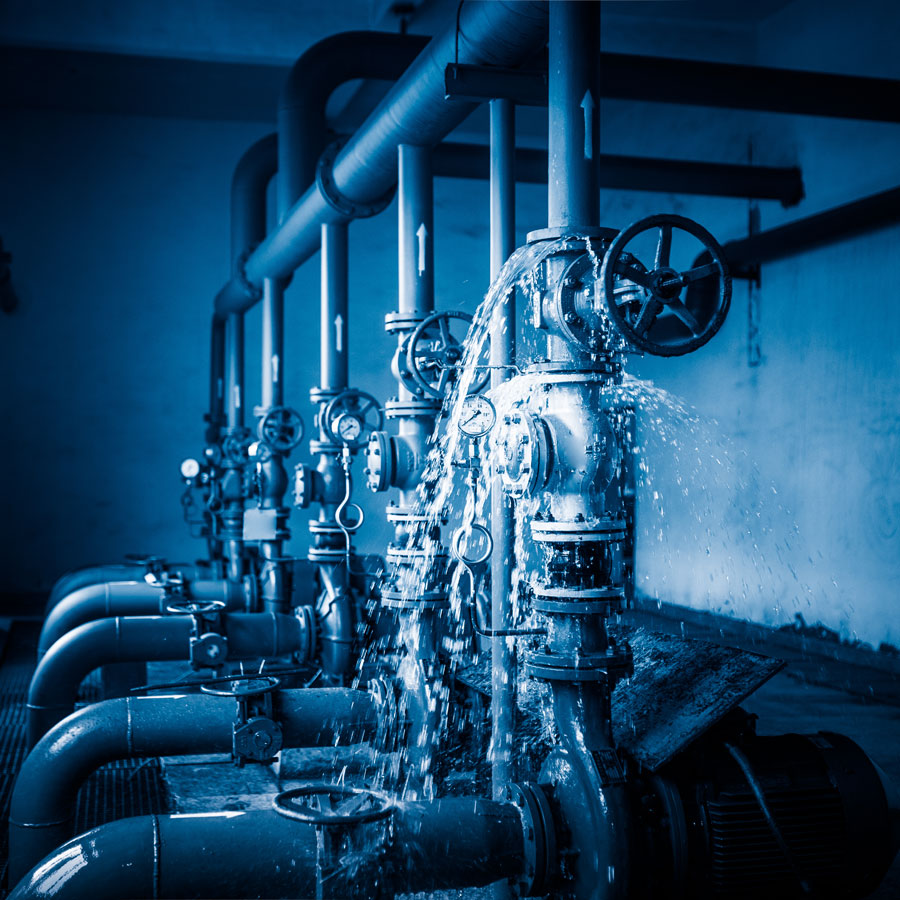

By the end of this course delegates will be able to:
• Demonstrate a sound understanding of the fundamentals of centrifugal pump.
• Understand the main features of pump types.
• Troubleshoot pump malfunction.
• Maximize pump shutdown intervals.
• Explain considerations related to the materials used in seal construction.
• Understand that pump performance can be affected by piping system and rotor balance.
• Mechanical Engineers, Superintendents, Supervisors, Foremen & Technicians
• Machinery Engineers, Superintendents, Supervisors, Foremen & Technicians
• Plant Engineers, Superintendents, Supervisors, Foremen & Technicians
• Maintenance Engineers, Superintendents, Supervisors, Foremen & Technicians
• Lectures
• Workshop & Work Presentation
• Case Studies and Practical Exercise
• Videos and General Discussions
Day 1
• 1. Basic Pump Principles
• How Pumps Work
• Head vs. Pressure
• Absolute and Gauge Pressures
• Work & Efficiency
• Flow & Head, Efficiency, Powe
• 2. NPSH and Cavitation
• NPSH required
• NPSH available
• Vapor Pressure
• Types of Cavitation
• Effects & Prevention
Day 2
• 3. Troubleshooting
• Why duties change
• Identifying problem applications
• Where do your pumps operate
• Instrumentation (reading from gauges)
• Fault finding and Failure Analysis
• Interpreting the Evidenc
• 4. Bearings
• Types & Services
• Lubrication
• Maintenance & Seals
• 5. Pump Classification
• PD, Centrifugal types
• Impellers, Liquids
• ANSI / API
• Specific Speed
Day 3
• 6. Pump Curves
• Head, Eff. & Power
• NPSHr
• Family Curves
• The Affinity Laws
• Speed & Diameter
• Practical Application
• 7. System Curves
• Total Dynamic Head
• Elevation, Pressure & Losses
• Static head, friction head curve
• Pumps in Series & Parallel
• 8. Pump Operation/Pump Reliability
• Definitions
• Operating away from BEP
• Energy savings, Increased MTBF
• Bearing and Seal Life
• Shaft deflection
• Maintenance Operation & Design
• 9. Pump Packing
• Packing Procedures
• Failure & Leakage
• Components
• 10. Mechanical Seals
• Components
• Single & Double
• Support Systems
• Centrifugal pump troubles
• Introduction
• Suction troubles
• System troubles
• Mechanical troubles
Day 4
• Positive displacement pumps
• 1. Introduction
• 1.1. Principle of Operation
• 1.2. Classification
• 1.2.1. Rotary Pumps - Various types
• 1.2.2. Reciprocating Pumps - Various types
Day 5
• 2. Common process industry pumps
• 2.1. Rotary Pumps
• 2.1.1. Gear Pumps
• 2.1.1.1. External Gear Pumps
• 2.1.1.2. Internal Gear Pumps
• 2.1.2. Lobe Pumps
• 2.1.2.1. External Lobe Pumps
• 2.1.2.2. Internal Lobe Pumps
• 2.1.3. Vane Pumps
• 2.1.3.1. Sliding Vane Pumps
• 2.1.3.2. Flexible Vane Pumps
• 2.1.4. Screw Pumps
• 2.1.4.1. Single Screw Pumps (Progressing Cavity Pumps)
• 2.1.4.2. Multiple Screw Pumps
• 2.2. Reciprocating Pumps
• 2.2.1. Metering Pumps
• 2.2.1.1. Plunger Pumps
• 2.2.1.2. Diaphragm Pumps
• 2.2.2.1. Plunger / Piston Pumps
• 2.2.2.2. Diaphragm Pumps
CDGA attendance certificate will be issued to all attendees completing a minimum of 75% of the total course duration
| Code | Date | Venue | Fees | Register |
|---|---|---|---|---|
| ME183-02 | 12-04-2026 | Dubai | USD 5450 | |
| ME183-03 | 13-07-2026 | Istanbul | USD 5950 | |
| ME183-06 | 25-10-2026 | Muscat | USD 5450 |
Providing services with a high quality that are satisfying the requirements
Appling the specifications and legalizations to ensure the quality of service.
Best utilization of resources for continually improving the business activities.
CDGA keen to selects highly technical instructors based on professional field experience
Since CDGA was established, it considered a training partner for world class oil & gas institution
3012, Block 3, 30 Euro Business Park, Little Island, Co. Cork, T45 V220, Ireland
Mon to Fri 09:00 AM to 06:00 PM
Contact Us anytime!
Request Info